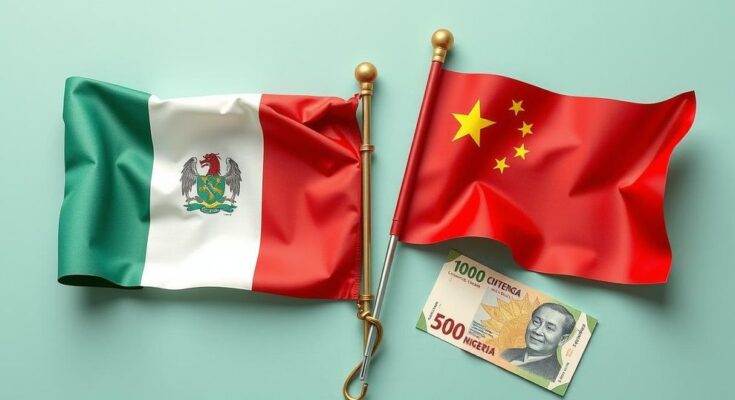China and Nigeria have renewed their $2 billion currency swap agreement for three years, aiming to enhance financial cooperation and lessen dependence on the U.S. dollar amid threats from U.S. President-elect Donald Trump. This agreement provides liquidity for both currencies and seeks to stabilize Nigeria’s depreciating naira, which has suffered significant declines since 2018.
China and Nigeria have officially renewed their $2 billion currency swap agreement for an additional three years, initially signed in 2018. This strategic move is aimed at enhancing financial cooperation and increasing the use of the naira and yuan in trade transactions, thereby diminishing reliance on the U.S. dollar. The People’s Bank of China confirmed this extension, indicating its potential for further renewal in the future.
This announcement coincides with recent tariff threats made by U.S. President-elect Donald Trump, who warned against currencies abandoning the dollar. In his remarks, Trump stated that BRICS nations could face restricted access to U.S. markets unless they commit to using the dollar. However, both South Africa and India have refuted any notions that the BRICS alliance is shifting away from dollar dependence.
The currency swap deal between China and Nigeria is expected to provide liquidity for both the naira and yuan, thus facilitating smoother trade between the two nations. This arrangement aims not only to support bilateral trade but also to stabilize the foreign exchange situation in Nigeria. The Nigerian naira has faced significant depreciation, dropping from 305 to nearly 1,000 naira per dollar by the end of 2022, which has raised questions about the sustainable effectiveness of such financial strategies.
The ongoing development of currency swap agreements, such as the one between China and Nigeria, highlights a trend where nations seek alternatives to traditional dominant currencies, like the U.S. dollar. This specific agreement aims to alleviate liquidity issues in trade, allowing businesses from both countries to engage in transactions without the intermediary of the dollar, which has become increasingly controversial in light of geopolitical tensions and tariff challenges. With the fluctuating value of the naira, the need for creative financial strategies, such as currency swaps, has gained prominence.
In summary, the renewed currency swap agreement between China and Nigeria reflects a growing relationship aimed at fostering trade and economic stability. While this development comes amid U.S. tariff threats, it signifies a potential pivot away from dollar reliance for these nations. The effectiveness of such arrangements in addressing local currency challenges, particularly for the naira, remains a topic of significant debate among experts.
Original Source: news.bitcoin.com




